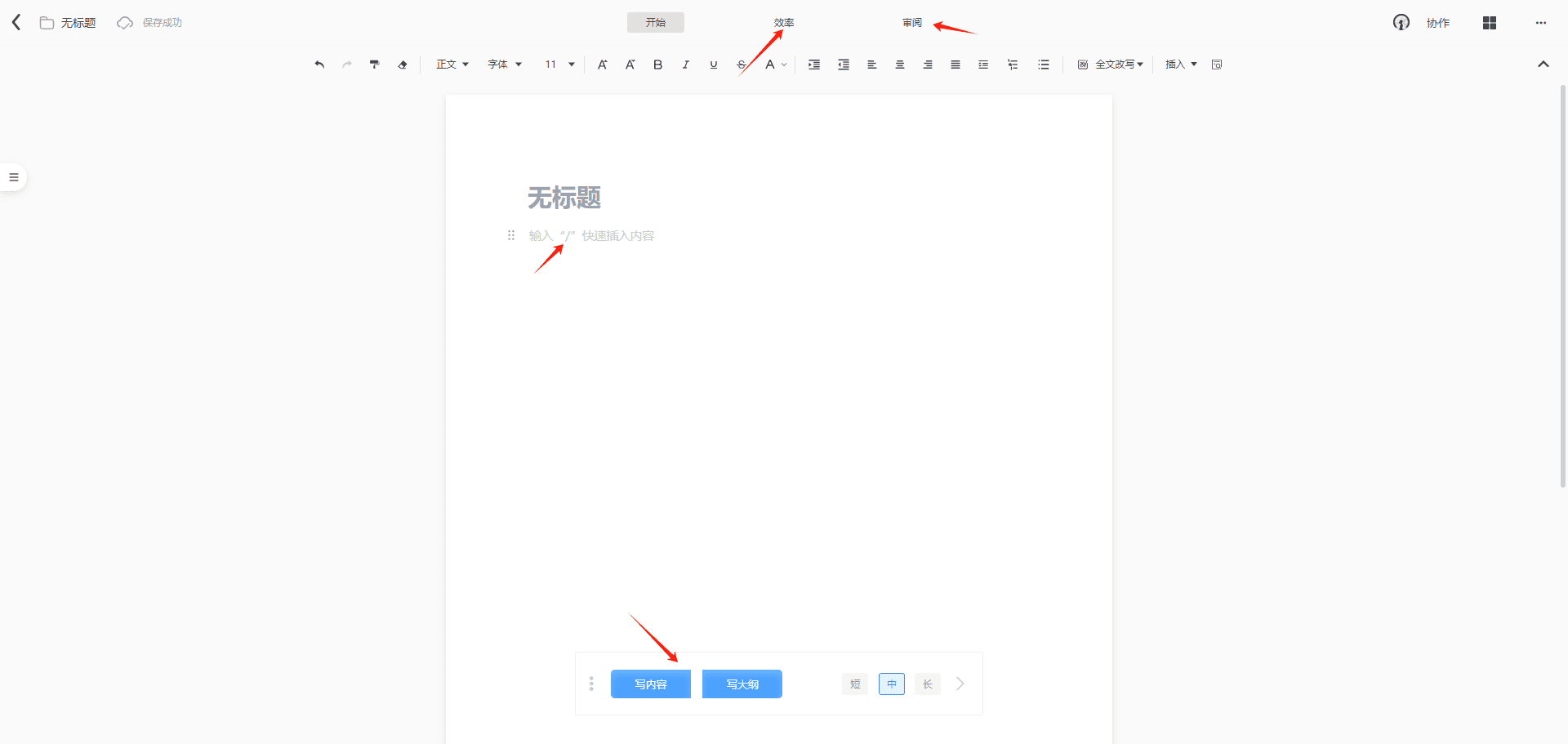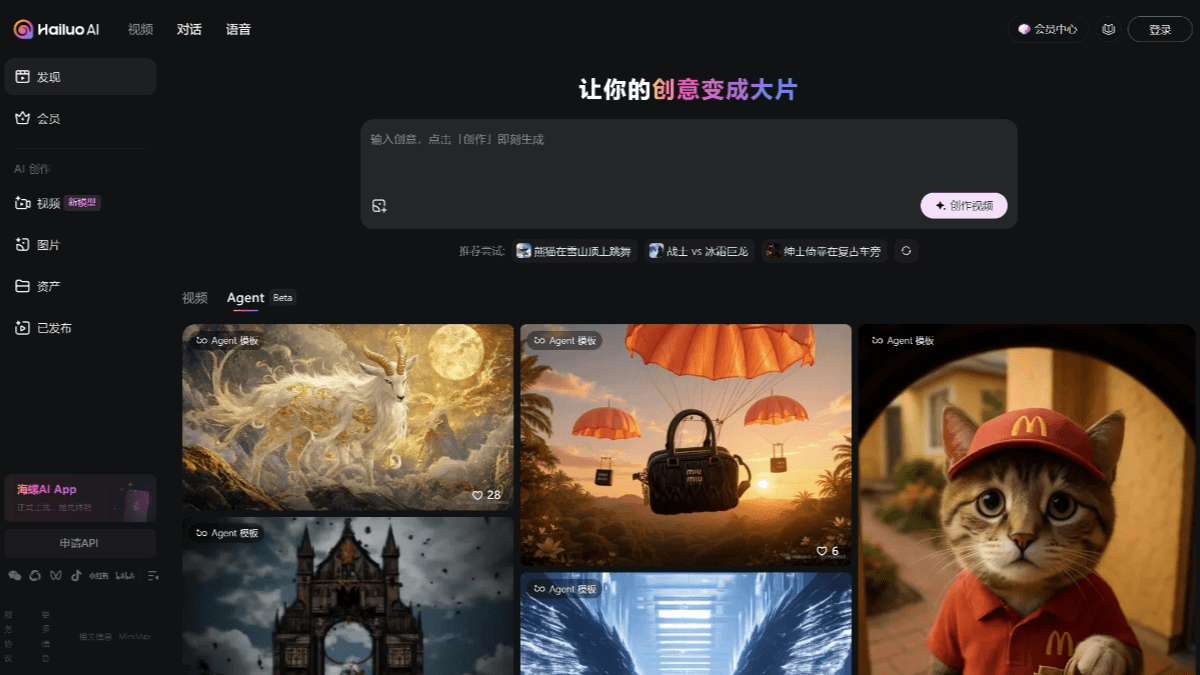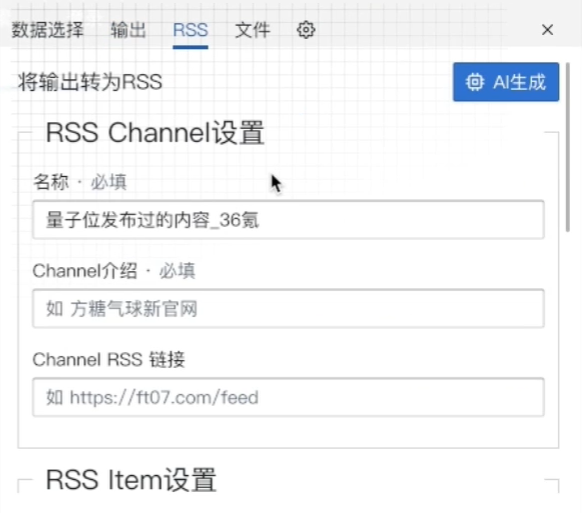Decagon: Enterprise Customer Service Intelligence Body Solution
General Introduction
Decagon is a company focused on delivering enterprise-grade generative AI customer support solutions. Its core product is an intelligent AI customer service intelligence capable of handling complex questions, integrating seamlessly with existing systems, and learning continuously from data.Decagon's solutions are designed to enhance the customer experience and improve operational efficiency through automated and intelligent customer service. The company has secured $65 million in Series B funding and is trusted by a wide range of large enterprises and fast-growing startups.
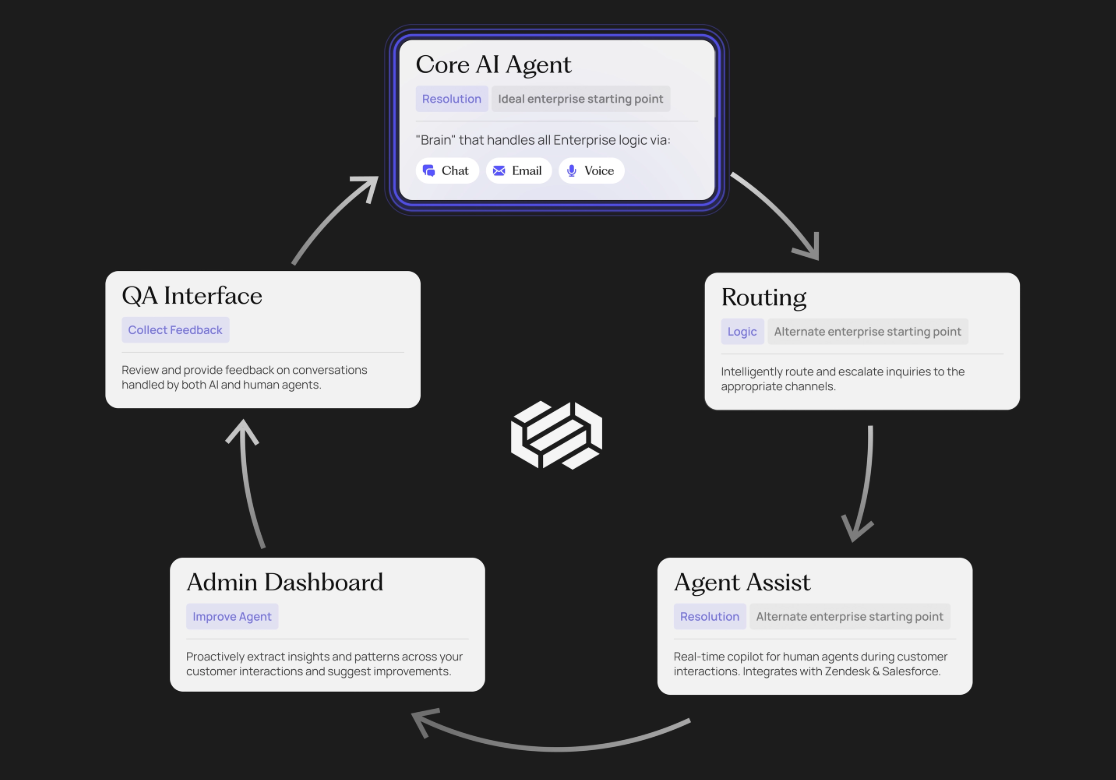
Function List
- Automated problem solving: Generate personalized responses, solve complex problems, and take action for customers across all channels.
- Seamless Integration and Workflow: Zero burden integration with existing knowledge, tools, data sources and workflows.
- Agent Assistance: Provide AI assistants to the team to handle daily tasks and continuously learn from the agents.
- AI-driven insights: Identify themes, spot anomalies, and unlock analysis of valuable conversations.
- Powerful analytics: Provides immediate ROI, transforms support operations and drives revenue growth.
- 24/7 service: Responds instantly in any language, providing infinitely scalable customer support.
Using Help
Installation process
- register an account: Visit the Decagon AI website and register for an account.
- Getting the API key: After logging into your account, go to the Developer page to get your API key.
- integrated code: Add the provided code snippets to your website or mobile app.
- Configuration settings: Configure AI customer service settings as needed, including language, response style, and more.
Guidelines for use
- Log in to the Administrator's Back Office: Log in to the Decagon AI Admin Back Office using a registered account.
- Setting up the Knowledge Base: Upload or synchronize your knowledge base to ensure that AI Customer Service has access to the most up-to-date information.
- Configuring Workflows: Setting up customer service workflows, including automation rules, escalation paths, etc.
- Monitoring and Optimization: Monitor the performance of AI customer service through the management backend, view analytics reports, and optimize as needed.
Main function operation flow
- Automated problem solving: AI Customer Service automatically generates a personalized response and takes action based on the customer's questions.
- Agent Assistance: During customer service, AI assistants provide real-time advice to help human agents solve problems more efficiently.
- AI-driven insights: Identify common problems and anomalies by analyzing customer conversations and providing recommendations for improvement.
- seamless integration: Integration with existing customer service systems (e.g. Zendesk, Salesforce, etc.) for data synchronization and workflow automation.
Decagon: Reinventing Customer Service with AI Agents
Decagon was created:Instead of overthinking, one shouldIt's time to move quickly.
Jesse Zhang showed a keen interest in math from a young age, growing up in Boulder, competing in math competitions as a child, and later studying computer science at Harvard University. After graduation, he founded his first company, Lowkey, which was eventually acquired by Niantic.From this experience, Jesse realized that you can't overthink, but you should act quickly.He co-founded Decagon with Ashwin to focus on the AI Agent space and quickly began commercial exploration.
Decagon's choice of entrepreneurial direction didn't happen overnight. Initially, the founding team was thinking about the best application scenarios for AI Agent, and they realized that not all fields are suitable for rapid deployment of AI Agent. They realized that not all areas were suitable for rapid deployment of AI Agent, and through market research and customer interviews, Decagon found that the current capabilities of AI Agent were not suitable for two scenarios:
1) Scenes that require high initial accuracy:In some domains, such as security, the room for error tolerance is almost non-existent. These scenarios require Agents to demonstrate extreme accuracy from the start. Security information management systems (SIMs), for example, work with the goal of capturing every small anomalous event, even though there is a large amount of log data that is perfect for AI models to process. However, today's AI models are sometimes wrong, so it's hard for customers to fully trust the AI Agent. in these scenarios, the AI Agent is slow to use.
2) Scenarios where it is difficult to quantify ROI:There are a number of areas where an AI Agent may seem like a good fit on the surface, but it is difficult to clearly quantify the ROI; for example, many "text to SQL" companies make demos that look good but still require human oversight and tuning, and the AI Agent is more of a co-pilot than a stand-alone solution. For most organizations, an AI Agent that requires human intervention is difficult to prove its ROI, and it is difficult for companies to sign large contracts for such an AI Agent.
Through continuous exploration, the Decagon team has come to identify two key attributes of a successful AI Agent use case:
1) Gradual scalability:Successful AI Agent applications should not aim to be a one-step process, but should support gradual rollout and iterative optimization. Even if the AI Agent can only perform some tasks initially, it should be able to create real value for the customer immediately.For example, a Coding Agent can take on some of the coding tasks first, significantly reducing the burden on human developers.
2) Have a clear ROI:Being able to clearly quantify ROI is key.In the customer service space, there exists a plethora of clear metrics that can be tracked, such as conversation resolution rates, customer satisfaction, and so on. These metrics allow the value of the AI Agent to be effectively measured and proven.
In the process, Decagon had in-depth conversations with a number of potential customers, including Rippling, Notion, Eventbrite, Vanta and Substack, gradually identifying key use cases - theCustomer Service Area.In the early days, Decagon didn't intentionally emphasize a grand vision, but rather focused on how to build products that customers would truly love and be satisfied with.
Decagon's differentiators:Transparency and observability
Decagon's core strength is its High transparency of the AI Agent and observability of application effects.
For large organizations, it's critical to ensure that the AI Agent isn't a "black box," and Decagon's platform provides a clear view of every decision the AI Agent makes, including what data is used, how answers are generated, and more. This high level of transparency significantly improves customer trust.
Additionally, in the customer service space, the effectiveness of automation software is often quantifiable, with customers evaluating Agent performance with clear metrics such as Effectiveness of AI Agent vs. manual labor, cost savings, and improved quality of customer experienceAnd so on. This quantifiable feature allows customers to try Decagon's AI Agent on a small scale before scaling it up.
While the customer service space is incredibly competitive, customers often try out several different AI Agent products at once for comparison and final evaluation based on specific data (e.g., strengths and weaknesses of metrics, effectiveness of the agent, etc.).Currently, Decagon excels in customer evaluations thanks to its high transparency and observability of effects.For example, Multi-Neighbor decided to formally adopt Decagon's AI Agent after just one month of testing in August 2024, and quickly achieved a conversation resolution rate of 80%.

Decagon conducted a large case study with Built Rewards, which has a large user base that earns points or makes payments through its platform. Due to the rapid growth of its user base, customer service needs were growing exponentially. Prior to Decagon, Built Rewards' customer service team was faced with an enormous workload.Within a month of adopting Decagon, the AI Agent took over most of the automation. In less than a year, Built Rewards saved the cost of about 65 human customer service agents.
Decagon's technical architecture:Orchestration Layer and Customized Models
Decagon positions itself as a software company, and despite frequent calls to AI base models like GPT-4 and Claude, these models are just tools.Decagon's unique value lies in what lies on top of the base model, including the orchestration layer and other features developed around the core AI Agent.The orchestration layer determines how the AI Agent mixes different AI models and works around the customer's business logic. Additionally, Decagon has developed transparency tools and analytics to help customers understand the data and steps that Agents use and perform, and to automate the analysis of massive customer service conversations.
For different AI Agents, the coordination layer can be very different, and the coordination logic of a Customer Service Agent is very different from that of a Coding Agent. But in the end, the various coordination layers are all structured systems built on top of the LLM.Decagon focuses heavily on the orchestration layer because it determines how the AI Agent will mix different AI models.Decagon set up evaluation mechanisms to measure the performance of each model on specific customer service tasks as a way of determining how to integrate these models so that they can work around the customer's business logic.
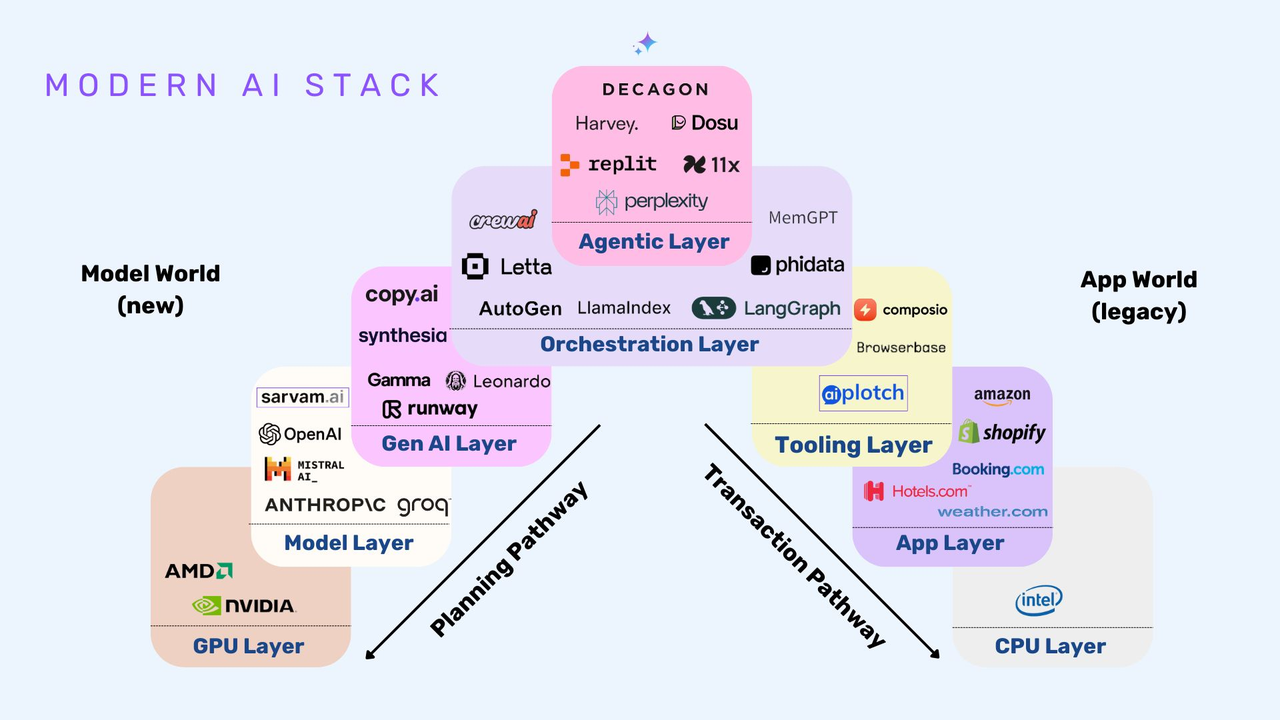
Modern AI Stack
In addition to the orchestration layer, Decagon has built a number of other customer service software features around the AI Agent.For example, Decagon has developed a transparency tool that allows customers to understand the data the Agent is using and the steps it is performing, ensuring that the AI Agent is no longer just a "black box" that answers questions. Additionally, when dealing with a large number of customer service conversations, it's difficult to see everything manually. Therefore, Decagon also designed an analytics feature that allows the AI Agent to automatically analyze conversations and generate reports on customer service issue categories and trends that need attention.
© Copyright notes
Article copyright AI Sharing Circle All, please do not reproduce without permission.
Related posts

No comments...

